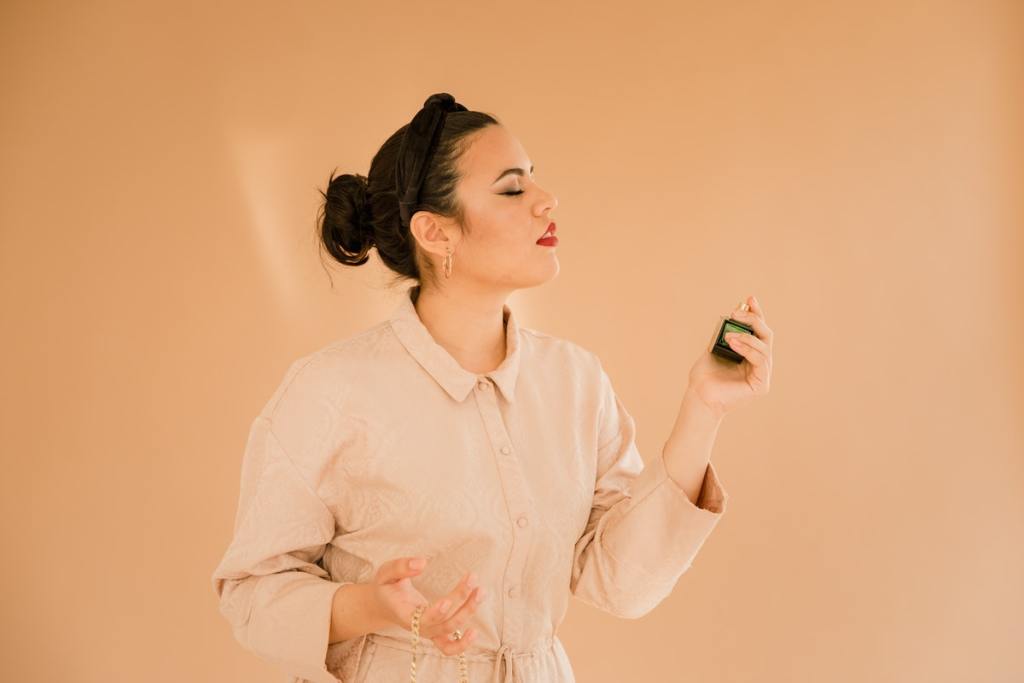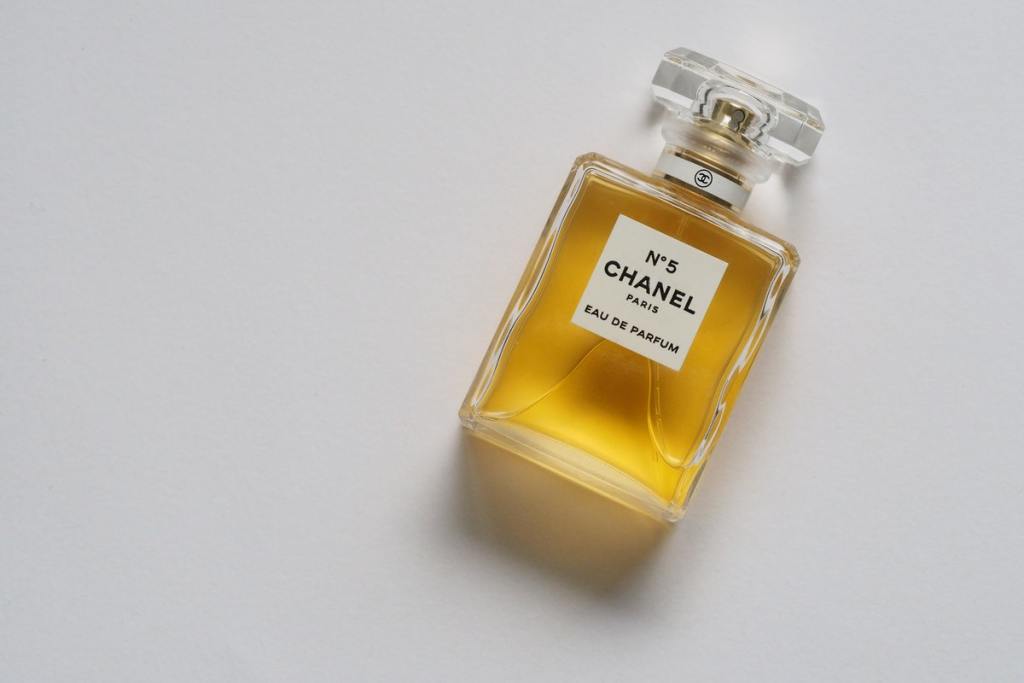So you’ve finally found a new fragrance that feels like you; now you just have to choose the type of perfume you want. Sound confusing? Here’s our guide to the five perfume types and how to tell the difference between them so you get the right one for your needs.

Fragrance differences
The differences in perfume types have to do with the oil to alcohol concentration in the product. That number on the box by the name is what’s important when it comes to the length of time it will wear. It’s the fragrance concentration percent.
- Higher fragrance concentration = more oil of the fragrance
- Higher fragrance concentration = less alcohol
Parfum
Let’s start at the top. This is the most concentrated, most potent, longest-lasting of fragrance. The average concentration is around 20 to 30% but can be up to 40% fragrance concentration.
Pro
- Best for sensitive skin
- Least amount of alcohol
- Won’t dry out skin
- Lasts the longest (up to eight hours)
Con
- Most expensive

Eau de parfum
If you don’t want to spend the money that a parfum will run, your next best option is going to be looking for an Eau de parfum.
Pro
- Less expensive than a parfum
- Easy to find
Cons
- Higher alcohol concentration
This kind of fragrance lasts about 5 hours long, so it is still a great pick. The concentration is generally around 15 to 20%, Though it does have a higher alcohol concentration, which can mean trouble for your skin, although most people don’t react to Eau de parfum fragrances.
Eau de toilette
As we get lower down the fragrance ladder, we see a pattern. The price and fragrance concentration drop and the alcohol concentration rises. This might be friendlier to your wallet, but not so friendly if you have sensitive skin. The higher alcohol amount can irritate your skin, cause redness or bumps, and can sting your nose.
Pros
- Less expensive still
- Fine for a few hours of scent
- Most common
Cons
- More alcohol means a higher risk of irritation
- Won’t last all day if you are looking for that
With a maximum fragrance concentration of 15%, expect the scent of an Eau de toilette to last no more than three hours. Still, eau de toilette can work if you like to re-apply scent during the day or switch between day and night fragrances.
Eau de cologne
With a maximum of 4% fragrance concentration, you’ll find more alcohol in this type of scent than anything else. You need to spritz this on a lot of product to get the scent you want as well.
Pros
- Affordable for tight budgets
- Comes in larger bottles
Cons
- Only lasts an hour or two
- Have to use a lot
Since the scent won’t last long, eau de cologne is a great choice if you just need something for a date or dinner out and don’t want the scent to last all night.

Eau Fraiche
This one is extremely similar to eau de cologne in some ways. The main difference is that Eau Fraiche is water-based, which is great news if you have sensitive skin.
Pros
- Extremely affordable
- Water-based – won’t irritate skin
Cons
- Only lasts up to 2 hours
- Need to use quite a bit
With a fragrance concentration of only up to 3%, you’ll need to keep the bottle nearby if your want the scent to carry through the day. But for a nice scent to perk you up for a short time, this is a great option.
Armed with this information you can walk up to that fragrance counter with confidence and ask for exactly what you want. Whatever appeals to your senses is the obvious choice – but – if you have always wondered why one fragrance was more expensive than another or what the numbers on the box meant, now you know. So have fun spritzing and sniffing your way to your new favorite fragrance to fit your lifestyle.
BlissMark provides information regarding health, wellness, and beauty. The information within this article is not intended to be medical advice. Before starting any diet or exercise routine, consult your physician. If you don’t have a primary care physician, the United States Health & Human Services department has a free online tool that can help you locate a clinic in your area. We are not medical professionals, have not verified or vetted any programs, and in no way intend our content to be anything more than informative and inspiring.



